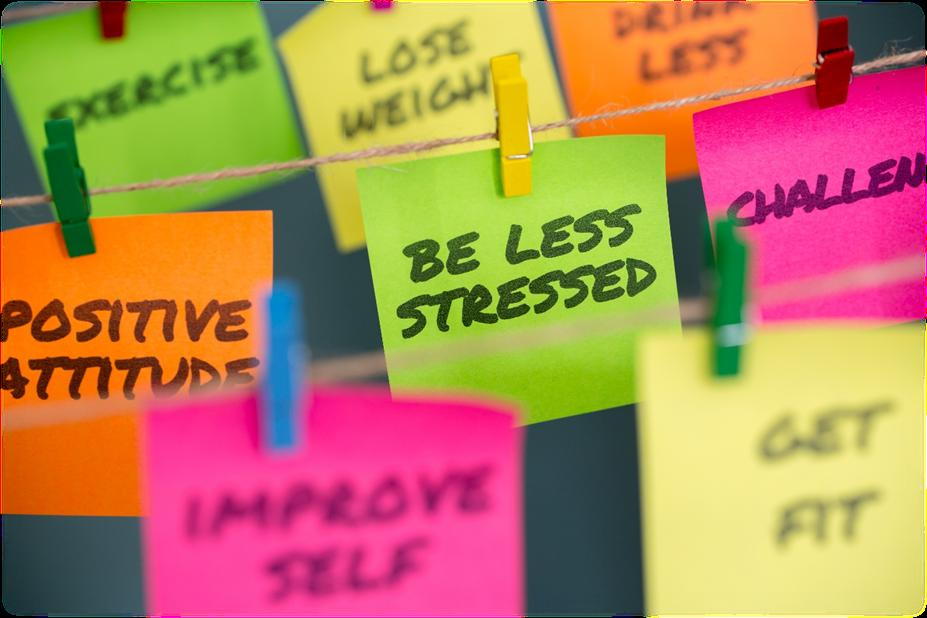The Escalation of Anxiety and Stress in Recent Years: How Counseling Can Help
- posted: Feb. 06, 2023
The Escalation of Anxiety and Stress in Recent Years: How Counseling Can Help
Anxiety and stress levels in the general population have risen significantly in recent years. The two years of continuous stress during the COVID-19 pandemic have generated or exacerbated anxiety, sadness, and burnout in millions worldwide.
According to the American Psychological Association (APA), anxiety and depression rates among adults in the United States have more than quadrupled between April 2020 and August 2021 compared to 2019.
Quarantine, uncertainty, remote work, schooling, and dealing with disease and death caused by the virus have all contributed to an upsurge in mental health issues.
Anxiety After COVID Pandemic
Experts agree that in times of crisis, an increase in anxiety, burnout, and depressive symptoms is to be expected. The pandemic posed a continuing threat. The amygdala in our limbic system triggers the cognitive-emotional-physiological "flight or fight" response when we sense impending danger, which helps us deal with stressful situations.
As a result, feeling apprehensive amid a crisis is natural. However, excessive or prolonged worry and fear do not allow your body to recover from a stress response, hurting your physical and mental health and well-being.
Anxiety caused by the pandemic can lead to depression, loneliness and isolation, eating disorders, drug addiction, relationship issues, and behavioral difficulties.
In addition, Hurricane Ian, which claimed 119 lives and caused massive damage along the southeast coast in September 2022, has additionally aggravated the mental health crisis.
External factors such as the pandemic or natural catastrophes can significantly contribute to mental illness, relationship struggles, or work-related stress, influencing how we think, feel, and act. For example, you may be grieving the loss of a loved one due to the virus or Hurricane Ian. At the same time, you may be coping with survivor's guilt and burnout from dealing with uncertainty and concern for an extended period.
Anxiety and Stress Symptoms
Although anxiety and stress can affect different people differently, here are some of the common symptoms you may experience:
- Changes in mood
- Feeling exhausted
- Difficulty focusing and remembering things
- Sleep problems
- Changes in appetite
- Rapid, shallow breathing
- Automatic negative thoughts
- Increased heartbeat
- Sweating
- Nausea and vomiting
Anxiety and stress counseling can assist you in identifying your anxiety and stress symptoms, help you incorporate self-care into your daily routine, and teach you how to reduce anxiety and stress.
How Anxiety and Stress Counseling Can Teach You Self-Care for Anxiety and Stress Relief
If you feel that you or your loved one cannot manage anxiety and stress without help, seek counseling or psychotherapy. Depending on your needs, individual, couples, or family counseling can be a safe place to address your concerns and learn self-care strategies to reduce stress and anxiety after COVID.
Research shows that self-care for anxiety and stress can help maintain your psychological, emotional, and social well-being, manage challenges, improve resilience, and lower your risk of illness. As such, self-care is a pillar of good mental health and well-being.
Common self-care behaviors your therapist may encourage you to start and practice involve:
- Mindfulness, meditation, and relaxation
- Self-Compassion
- Journaling
- Gratitude
- Regular physical activity
- Good sleep habits
- Healthy diet
 Mindfulness and Relaxation
Mindfulness and Relaxation
Anxiety and stress counseling may be an excellent starting point for developing your everyday habits of mindfulness and relaxation. Being mindful requires having an open, accepting mindset that may teach you how to treat yourself without judging or criticizing.
It allows you to be aware of your negative feelings and thoughts without responding to them. This may lessen your emotional distress and improve your capacity for self-compassion.
Furthermore, practicing breathwork and other relaxation techniques with your therapist can help divert your mind from disturbing thoughts and teach you to examine them as they occur, without judgment or self-blame.
Self-Compassion
Self-compassion involves treating yourself with the same kindness and concern you would offer to a loved one in distress. Counseling can assist you in recognizing and changing negative thought patterns that undermine self-compassion and cause anxiety and stress.
Journaling
Journaling might help you identify patterns that cause anxiety and stress. Writing down your thoughts also enables you to evaluate their correctness. It allows you to keep track of your emotions and become more conscious of how your thoughts affect you. Such self-awareness encourages self-love and self-compassion, an essential component of self-care.
Gratitude
When you make gratitude a habit, you regularly express appreciation for things that are important to you. This may inspire you to think more positively and become more optimistic.
Regular Exercise
Many studies have shown that physical activity can help reduce anxiety and stress. Physical exercise can rewire and reorganize the brain, creating new neurons and neural connections that trigger feelings of calmness and relaxation.
Exercise boosts dopamine and endorphins, our brain's powerful neurotransmitters, also known as "feel-good" hormones, contributing to happiness and relaxation.
Healthy Sleep Habits
Research shows that proper sleep can help reduce anxiety and stress by giving your mind and body time to recover, improving your resilience, and protecting your health.
Optimal Diet
Research suggests that our foods directly influence serotonin, the brain neurotransmitter that regulates mood, memory, and sleep. Low levels of serotonin are associated with mood disorders and depression.
Around 90% of the serotonin in our bodies is produced by the gastrointestinal (GI) tract. As a result, because our meals directly influence our "happy hormones," what we eat may impact how we feel, think, and behave.
The Mediterranean diet, high in fiber, antioxidants, and monounsaturated fats, has been shown to reduce stress, anxiety, and depression symptoms.
Summary
Making a conscious effort to reduce anxiety and stress can improve your resilience, self-esteem, and mood.
But remember that what works for someone else might not necessarily work for you. To improve your health and maintain that improvement over time, a qualified counselor may assist you in identifying coping mechanisms that are specific to your personality, requirements, and way of life.


